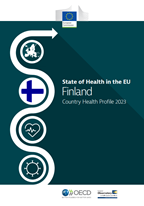HSPM
Health Systems and Policy Monitor




A major reform process has restructured the health system. Since 2023 healthcare in Finland is organized by 21 Well-being Service Counties (WBSC), the city of Helsinki, and the HUS group (former hospital district of Helsinki and Uusimaa). The WBSCs, which are governed by democratically elected councils, are financed from the state budget. Municipalities, which were responsible for organizing health care and social services until the end of 2022, remain responsible for public health functions, such as environmental health and health protection. For health promotion and well-being programmes, municipalities collaborate with the WBSCs.
The key change to state financing from 2023 is that municipalities will no longer be responsible for financing health care via the taxes they levy. Instead, the WBSCs will mainly be funded based on central government funding according to a specific formula.
Apart from national (centralized funds), other channels for financing health services include the compulsory contributions to the national health insurance (NHI) system, employers’ expenditure under the occupational care scheme, Voluntary Health Insurance, the FSHS expenditure for students in higher education, and households’ direct out-of-pocket (OOP) payments.
The reformed system relies largely on the ideas of centralized responsibility both at the national and regional levels and on the strong role of public provision in service delivery. The reform has streamlined the structure of the health system and is expected to improve the national government’s abilities to steer the system.
Subscribe to our newsletter
Sign Up